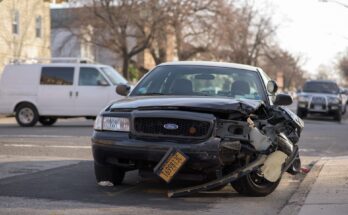If you’re like most people, you’re probably wondering if accidents are covered under your term insurance policy. The answer is, unfortunately, it depends on the terms of your policy. In this article, we’ll outline the types of accidents that are typically covered and the risks associated with each. Armed with this information, you can make an informed decision about whether or not accident coverage is right for you!
What is Term Insurance?
Term insurance is a type of insurance that covers a specific period of time. It can be thought of as a safety net for when things go wrong and you don’t have the money to cover the cost yourself. Term insurance can help provide peace of mind in knowing that you’re covered if something happens and you can’t afford to pay out of your own pocket.
Depending on the policy, term insurance may be able to cover things like medical expenses, lost wages, and funeral costs. There are also some policies that offer coverage for personal accidents, like car accidents or injuries sustained while at work. In order to ensure that you’re getting the most benefit from your term insurance policy, it’s important to understand what’s covered and what’s not.
Some common exclusions are things like damage caused by natural disasters or theft that happened before the policy started. There are also some limits on how much coverage you may be eligible for, so it’s important to read the fine print before purchasing a policy.
How term insurance works
Term insurance is a type of insurance that provides protection for a set period of time, typically one year. With term insurance, you are insurable for a specific amount of time and are not protected if you are fired or quit your job during the term of your policy.
Though accidents can happen at any time, they are more likely to occur during the term of your policy. This is because the coverage period coincides with the time when you are most likely to be injured or suffer a loss.
If an accident occurs while your term policy is in effect, you may be eligible to receive benefits from your policy. The extent of those benefits will depend on the terms of your policy and the state in which you reside.
What Factors Affect Term Insurance Rates?
The cost of term insurance is influenced by a number of factors, including the age and health of the policyholder, the type of coverage offered and the insurer’s underwriting criteria.
In order to provide affordable protection for you and your family, your term insurance policy should have a low premium. Premiums for term insurance policies can vary dramatically based on factors such as your age and health. A policy with a higher premium could be more expensive than a policy with a lower premium if you are between ages 40-65 and have no major medical conditions.
Typically, term insurance premiums are higher for those who are older and have more health problems. Premiums also increase when an insurer believes that the applicant is at an increased risk of having a claim paid. The insurer may also charge more for policies with higher levels of coverage. Coverage options include cash value, permanent life or whole life policies.
Who is covered by term insurance?
If you’re thinking about buying term insurance, it’s important to understand who is covered by the policy. Term insurance is designed to protect you from a single event that happens while you have the policy in place. That means your family and friends are usually not covered.
The main types of term insurance are accident insurance and medical insurance. Accident insurance protects you from accidents that happen while you’re on the job or while you’re traveling. Medical insurance covers medical expenses that occur while you have the policy in place.
To be insured for an accident, you generally need to have a term policy with at least $250,000 in coverage. For medical coverage, you generally need to have $500,000 in coverage.
What are the benefits of term insurance?
Term insurance can be a great way to protect yourself financially in the event of an unexpected accident. Here are some of the benefits:
-Term insurance can help cover medical expenses, lost wages, and other out-of-pocket costs associated with an accident.
-You can typically purchase term insurance for a set period of time (typically 6-12 months), which means you don’t have to worry about potential renewals or changes during your coverage period.
-If you have insurability, term insurance can provide financial protection in the event that you are unable to work due to an accident. This can help maintain your standard of living while you recover.
-Depending on the policy, term insurance may also offer death benefit protection. This means that if you die as a result of an accident, your family may be able to receive payment from the policy’s payout fund.
-In order to qualify for term insurance, you generally need to be financially stable and have no major health issues. However, many policies offer exceptions or discounts for people who meet these criteria.
What Are the Disadvantages of Term Insurance?
Term insurance is a type of insurance that provides coverage for a specific period of time, such as three years or six months. The advantage of term insurance is that it is easy to purchase and there are no annual premiums. The disadvantage of term insurance is that it does not provide any coverage if the policyholder dies during the coverage period. Although accidents may not be the main reason someone chooses term insurance, they can occur and lead to a death. If an accident occurs and you are covered by your term policy, the insurance company may refuse to pay out because your policy only covers you for a specified length of time.
What are the risks of term insurance?
Term insurance is a great way to protect yourself from a range of risks, including accidents. But what are the risks?
Here’s a look at some of the most common types of accidents and how term insurance can help you protect yourself.
Car Accidents: If you’re involved in a car accident, your term insurance may help pay for damages to your vehicle, injuries you sustain, and possibly even legal fees.
slip and fall accidents: A slip and fall can happen anywhere- in your home, at work, or even on the street. If you are injured in a slip and fall, term insurance can help pay for medical expenses and lost wages.
property damage accidents: A property damage accident occurs when you or someone else damages someone else’s property. This could mean breaking windows, damaging walls, or destroying furniture. Term insurance can help cover the cost of repairing or replacing damaged property.
homeowner’s insurance: Homeowner’s Insurance covers your personal possessions in your house if they are stolen or damaged while you are not home. Homeowner’s insurance also covers any damage done to your house while you are home, as long as you have
When do you need to buy term insurance?
Term insurance is a type of insurance that covers you for a set period of time, typically one year. Term insurance is usually bought in addition to your regular insurance policy, and is designed to cover you if there is an unexpected event that causes you major injury or death. If something happens and you don’t have term insurance, you may be able to get coverage through your regular policy, but it will likely be more expensive.
Term insurance can also be a good way to hedge your bets. Say you’re worried about the economy and think it might go bad again soon. By buying term insurance, you’re protecting yourself from any financial losses should something happen that’s considered an “unexpected event.”
There are a few things to keep in mind before buying term insurance:
-You need to decide how long you want coverage for. Most policies cover one year, but some cover up to three years.
-You also need to decide how much coverage you need. A standard policy will cover $100,000 per occurrence, but some policies offer more coverage at a higher price.
-Make
Is Term Insurance Right for You?
Term insurance is a type of insurance that covers you for a specific period of time, typically three years or a set amount of time. Term insurance is often thought of as a way to protect yourself from the possibility of losing your home or income in the event of an unforeseen event. However, term insurance can also be valuable if you have an unexpected accident that causes major financial damage.
If you’re considering term insurance, be sure to ask yourself these questions:
-Do I want to cover myself for a set amount of time, or do I want coverage until a specific event happens?
-How much coverage do I need?
-What are my deductible and co-insurance amounts?
-How will any claims be handled?
-How often will I need to make payments?
-What are the terms and conditions of the policy?
If you answered “yes” to at least one of the questions above, term insurance may be right for you. However, it’s important to do your research and compare different policies before signing up.
Which Types of Accidents are Covered by Term Insurance?
If you’re considering term insurance, you may be wondering which accidents are covered. In general, most term insurance policies will cover accidents that occur while the insured is driving or using a motor vehicle. This includes accidents that occur while the insured is walking, biking, skating, operating a boat, or participating in any other form of transportation.
Some policies may also cover accidents that occur while the insured is engaged in activities outside of a motor vehicle, such as when they’re working at home or on their own property. You should always read your policy carefully to find out exactly which accidents are covered and what limits may apply.
If you’re ever involved in an accident and don’t have term insurance coverage, you may be able to get coverage through a personal injury lawsuit. This is especially true if the accident was caused by someone else (like a pedestrian who crossed the road in front of your car) rather than by something you did while driving or using a motor vehicle.
The Types of Accident COVERAGE
The types of accident coverage that are available vary depending on your policy, so it’s important to talk to your agent about what you need. But in general, most term insurance policies offer at least general liability, property insurance, and automobile insurance. General liability coverage protects you from lawsuits that arise from your actions or inactions as an officer or director of a company or as a member of a profession. Property insurance covers the value of any property that you may damage while performing your duties as an employee or owner. Automobile insurance protects you financially if you are involved in a car accident.
Depending on the type of accident, other types of coverage may be available, such as medical payments and Lost Income Coverage. It’s important to review your policy carefully to see what is included and to determine the amount of coverage you need.
How Accident COVERAGE is Determined
Some people think that if you get into an accident, your insurance will cover the damage. However, that’s not always the case.
There are a few factors your insurance company takes into consideration when determining whether or not to cover an accident.
One thing your insurance company will look at is how much was actually damaged in the accident. If you were only driving your car and someone else crashed into it, your car may be considered damaged even if there wasn’t any structural damage done to it. However, if you were at the scene of a car crash and saw a friend driving recklessly and caused the accident, your car may not be considered as damaged.
Another factor your insurance company takes into consideration is whether or not you were at fault for the accident. If you were driving recklessly and caused the accident, your insurance company may decide not to cover any damages. However, if you were just driving and another driver caused the accident, your insurance company may decide to cover all of the damages.
If you have term life insurance, your insurance company will also look at how long you have had the policy. If you have had
Is Accident COVERAGE Worth the Cost?
Are accidents covered in term insurance? The short answer is, it depends. A lot of factors go into whether or not a policy covers accidents, including the type of accident and the age of your car. If you’re unsure whether or not your policy covers accidents, you should speak with your agent or broker.
Conclusion
In this article, we will be looking at what is covered under term insurance and how much you would be likely to pay in the event of an accident. We will also look at some other factors you should consider when purchasing term insurance, such as your age, location and occupation. Hopefully, this guide has helped you answer some questions that have been on your mind about term insurance. If not, don’t hesitate to get in touch with our team for more information.



